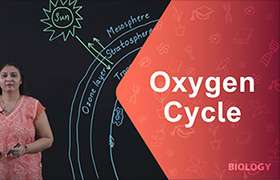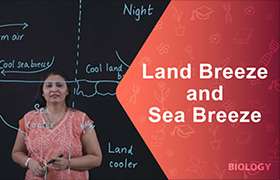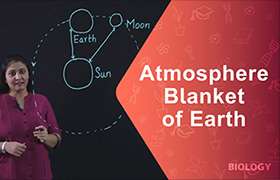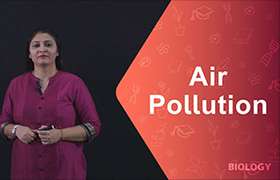CBSE Class 9 Answered
Ques. 1.
which radiation is absorbed by carbon dioxide?
Ques. 2.
what would happen if the ozone layer of the atmosphere disappears? give 4 consequences.
Asked by | 07 Mar, 2013, 06:43: PM
1) Carbon dioxide molecules in the air absorb thermal infrared radiation.
2) The layer of ozone in our upper atmosphere blocks ultraviolet radiation that would otherwise be harmful to plants, animals and humans. The reaction between ozone and UV radiation blocks most of the radiation from reaching the surface of the Earth. Without ozone protection, UV levels would increase dramatically at the Earth's surface. Ozone layer depletion increases the amount of ultraviolet radiation and the risk of health effects for all life on earth.
- Increased levels of UV radiation have been linked to skin cancer, cataracts and weakened immune systems in humans.
- In nature, increased UV radiation is responsible for crop failures and disruption of the ocean's food chain.
- Physiological and developmental processes of plants are affected by UV radiation, even by the amount of ultraviolet radiation present-day sunlight.
- Solar UV radiation has been found to cause damage to early developmental stages of fish, shrimp, crab, amphibians and other animals. The most severe effects are decreased reproductive capacity and impaired larval development.
- Increases in solar UV radiation could affect terrestrial and aquatic biogeochemical cycles, thus altering both sources and sinks of greenhouse and chemically-important trace gases.
- Synthetic polymers, naturally occurring biopolymers, as well as some other materials of commercial interest are adversely affected by solar UV radiation.
As ozone molecules float through the atmosphere, they are exposed to strong ultraviolet (UV) rays from the sun. When a UV ray impacts an ozone molecule, the ozone absorbs the ray and converts its energy into heat. The reaction causes the ozone molecule to breakdown into a single oxygen atom and a separate pair of oxygen molecules. In a short space of time, the oxygen pair combines with another single oxygen molecule to form a new three-oxygen-atom ozone molecule.
Answered by | 08 Mar, 2013, 10:24: AM
Application Videos
Concept Videos
CBSE 9 - Biology
Asked by surajdabas414 | 14 Nov, 2023, 03:08: PM
CBSE 9 - Biology
Asked by aryay7355 | 11 May, 2022, 08:51: PM
CBSE 9 - Biology
Asked by ankitasingha441 | 10 Nov, 2021, 06:44: PM
CBSE 9 - Biology
Asked by nikhilmgs1234 | 18 Mar, 2021, 08:30: PM
CBSE 9 - Biology
Asked by harjot.arshleen | 25 Feb, 2021, 06:53: PM
CBSE 9 - Biology
Asked by harjot.arshleen | 02 Feb, 2021, 06:16: PM
CBSE 9 - Biology
Asked by sauravkumar40702 | 20 Jan, 2021, 03:51: AM
CBSE 9 - Biology
Asked by nagankerimanikreddy | 05 Jan, 2021, 06:18: PM
CBSE 9 - Biology
Asked by sanjidpkedpt | 02 Jul, 2020, 08:37: PM
CBSE 9 - Biology
Asked by balwant.singh.siral | 08 Jan, 2020, 06:27: PM











